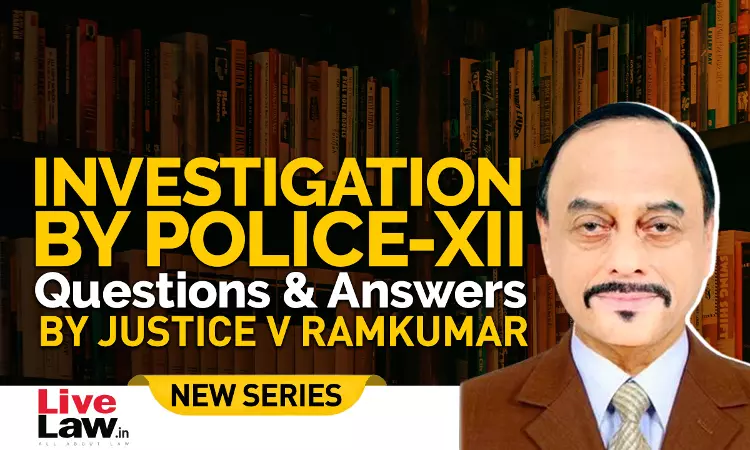Questions & Answers By Justice V. Ramkumar- Investigation By Police-PART XII
Justice V. Ramkumar
9 Dec 2022 10:54 AM IST

Next Story
9 Dec 2022 10:54 AM IST
A1. INVESTIGATION BY THE POLICE – Part XIQ.56 Supposing the Investigating Officer files a closure report to the effect that no case is made out for prosecuting the accused. Has the Magistrate the authority to disagree with the Police and take cognizance of an offence made out by the prosecution records ? Ans. Yes. (Vide para 17 of M.C. Abraham v. State of Maharashtra...
